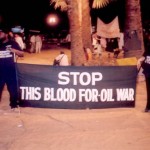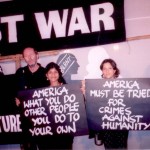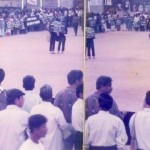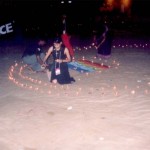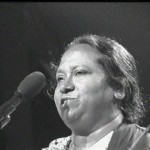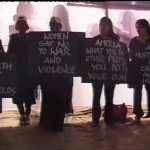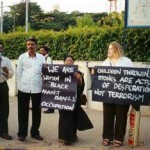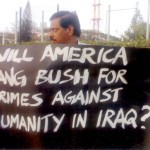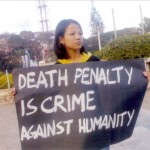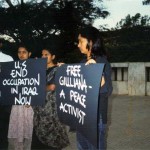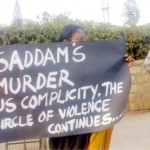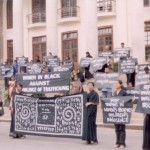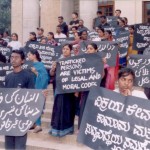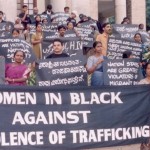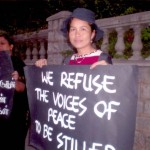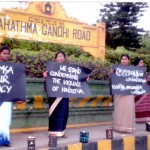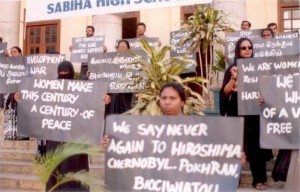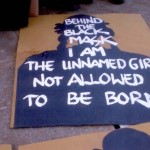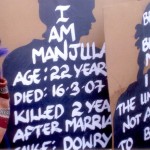Monthly archives: August 2011
Events
The Women in Black, India in a quiet, sustained way has sought to make public the many forms of ‘personal’ violence against women – wife battering, dowry deaths, female foeticide female circumcision, pornography, sexual assault, rape. Everywhere, women, are unmasking the many horrific faces of more public ‘legitimate’ violences – state repression, communalism, ethnic cleansing, nationalism, nuclearisation, wars ….. violence in the name of development, in the name of reproductive technologies, genetic engineering, and the feminisation of poverty.
The issues have been many. The forms in which protests have been expressed have also been varied. Silence, posters, placards, pamphlets and some times lighting lamps, have been an expression of this collective rebellion and resistance.
While the above mentioned issues are some of the vigils that the WIB India have focused on, we have also stood in solidarity for peoples living in war and conflict zones – with people of Afghanistan, Iraq, Palestine to mention a few.
On March 8, 2002, International Women’s Day we stood on the streets of Bangalore where over 1,000 men and women from all walks of life joined our voices in solidarity against the forces of Hindutva.
In 2002 the Women in Black in Bangalore stood in silence every week for almost three months protesting the declaration of America’s War of terror on Afghanistan.
On February 15, 2003 a day on which human rights organisations across the globe came together in their towns and cities to protest the war on Iraq the Asian Women’s Human Rights Council India and Vimochana organised a Women in Black vigil.
In Solidarity
We have also used this form of protest at many of our programmes in different parts of the world to highlight and make public the issues that have never been recognised as human rights violations.
For example, in the Philippines, with the Lila Pilipina, the organisation of the former comfort women, we have stood protesting the silence on this war crime of the Second World War demanding justice and reparation from the Japanese government.
In Nepal, we have stood in support of women who have been trafficked and women in prostitution.
We have stood in solidarity with other groups all over the world seeking justice for Sarah Balabagan, a Filipino migrant worker who was convicted for murdering her employer who raped her; and for thousands like her who are working in the most dehumanised and exploitative conditions in alien lands where they have no support.
We have stood in support of the brave women of Bosnia who inspite of the genocide, do not seek revenge but say “that this violence that has happened to us will never happen again to anybody in any part of the world”.
Through our protest and silence we continue to reach out gently to touch and embrace, to heal the scars and erase the immeasurable pain caused by all forms of violence against women and in the hope that a time will come when we will be able to look into each other’s faces, unafraid.

